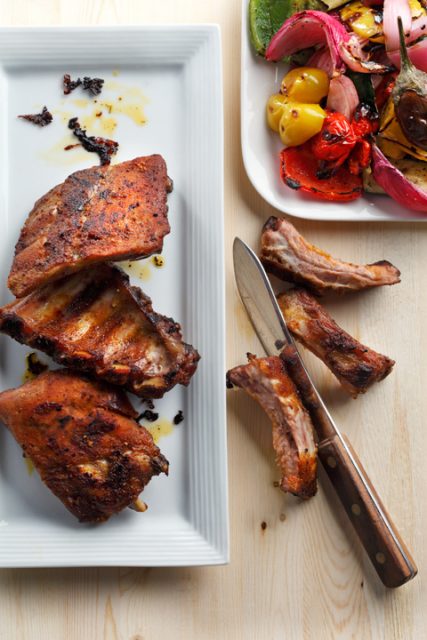Recent studies have confirmed that spices have powerful antioxidant, antimicrobial and inflammatory properties. They may also aid in the prevention and treatment of a host of diseases ranging from cold and flu to arthritis and heart disease.
So…what is a spice? Spices are often linked with herbs but there are differences between the two. Herbs are typically the leaves of plants. Spices originate from a plant’s aromatic parts including the root (ginger), the bark (cinnamon), the flower (saffron), the berries (peppercorn) and the seed (cumin).
Herbs are at their best when they are fresh whereas spices gain their flavor and healing properties as they dry because naturally occurring enzymes are activated.
Here are a few common spices and what they offer:
Ginger – this aromatic spice ignites a healthy digestive system and boosts circulation. Some recommend it for the prevention and treatment of nausea and vomiting associated with motion sickness. Ginger ale anyone?
Red Cayenne – this spice is recommended to help reduce inflammation which is common symptom of most diseases. Cayenne can help fight off food cravings, help you eat less and it requires energy to eat it. It burns calories to eat it! That’s because the heat that your feel when you eat chili peppers takes energy to produce.
Cloves – this is a powerful anti-inflammatory fighter and may help fight many digestive system ailments.
Black Pepper – A very interesting property of this spice is that it will help stop the bleeding of a minor cut quickly. Just sprinkle of pepper over your cut, or mix it with a little aloe vera and spread it on. It won’t sting or burn and it actually reduces the pain and has antibacterial and antiseptic properties.
Cinnamon – Cinnamon improves your body’s ability to use insulin and take up blood sugar turning it into energy faster so you can use it. It helps cut heart threatening triglycerides and has helped decrease blood pressure and cholesterol. A study has shown that ½ teaspoon each day could cut your triglycerides and total cholesterol by 12-30% while boosting your body’s ability to store sugar. Cinnamon can also help decrease inflammation and helps with digestion. Try to use cinnamon in your coffee, on your toast or oatmeal or add a cinnamon stick to your water or tea.
Garlic – This spice is one to help enhance your endurance. It can also help lower blood pressure, inhibit coronary artery calcification and decrease platelet aggregation, thereby reducing the risk of coronary artery disease. It also contains a compound that is a potent antibacterial, antiviral and antifungal that can aid in curing colds, flu and infections.
So start using everything in that spice rack of yours! Spices are an excellent substitute for salt and they can make old recipes new and exciting again!
Keep Well…Kristy

